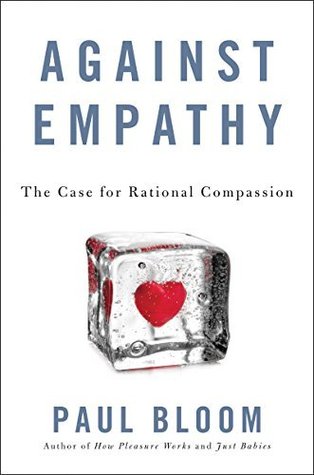In a summary of her research, Singer makes the same point in rather more careful language and then explores broader implications: When experienced chronically, empathic distress most likely gives rise to negative health outcomes. On the other hand, compassionate responses are based on positive, other-oriented feelings and the activation of prosocial motivation and behavior. Given the potentially detrimental effects of empathic distress, the finding of existing plasticity of adaptive social emotions is encouraging, especially as compassion training not only promotes prosocial behavior, but also
...more
Welcome back. Just a moment while we sign you in to your Goodreads account.


